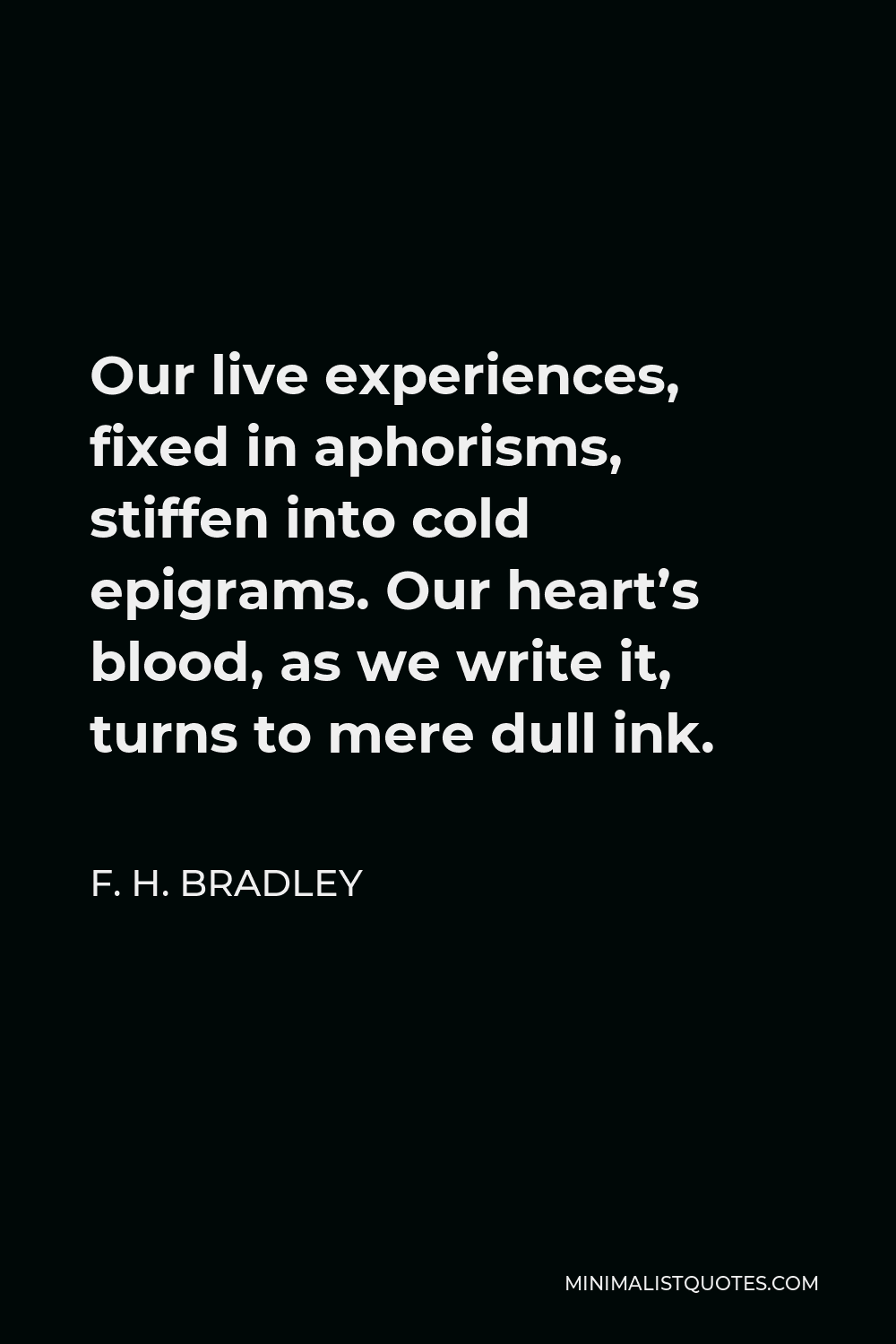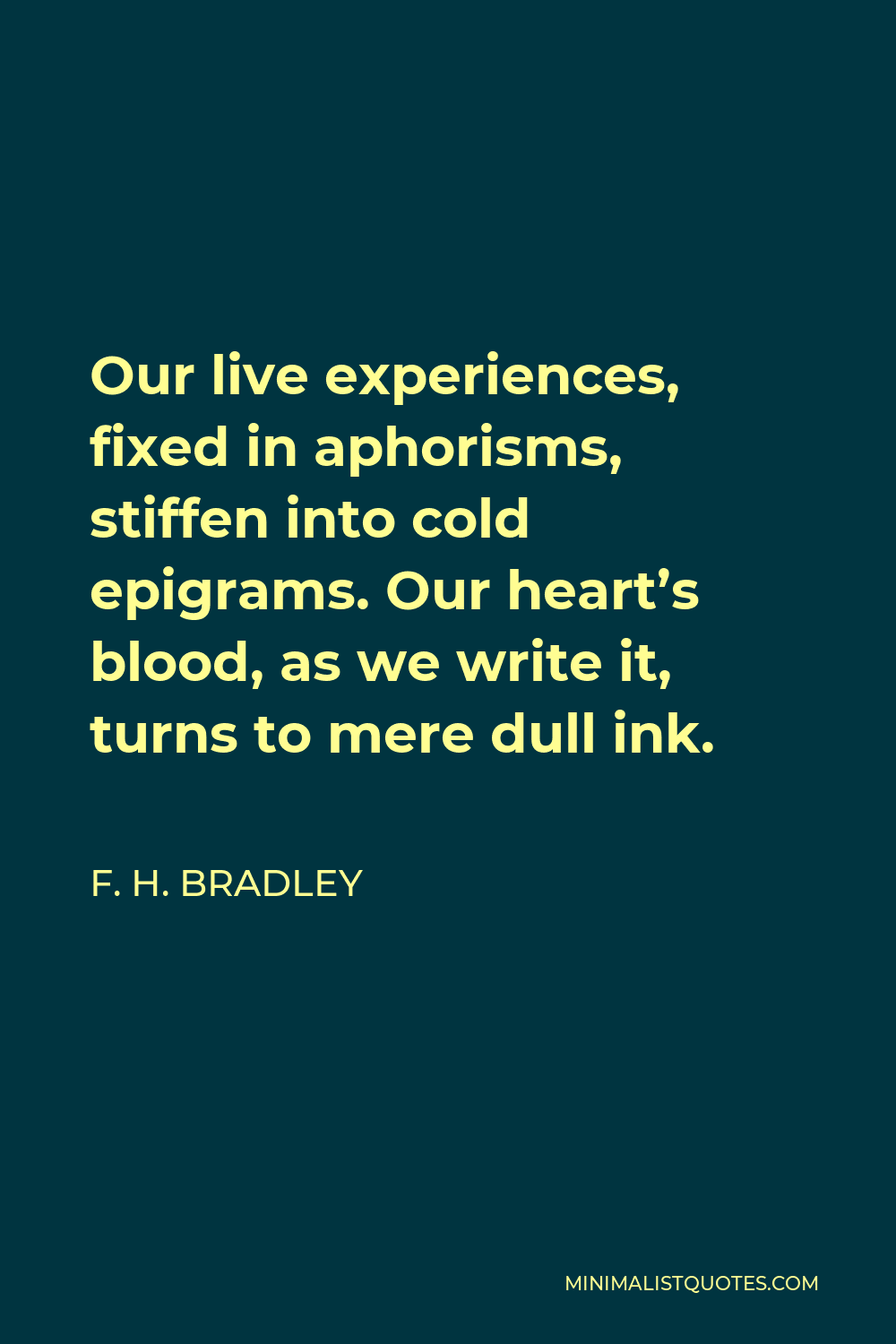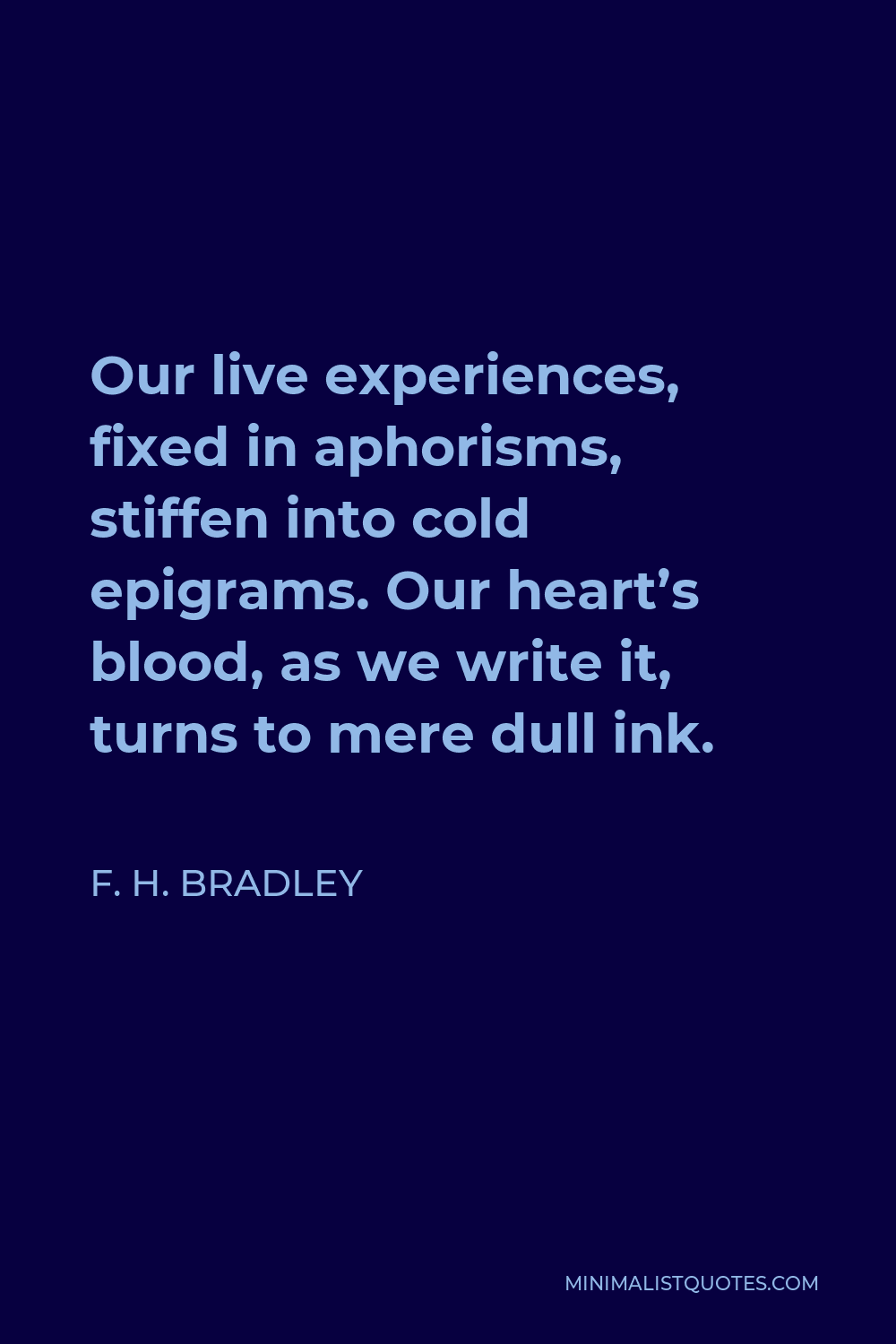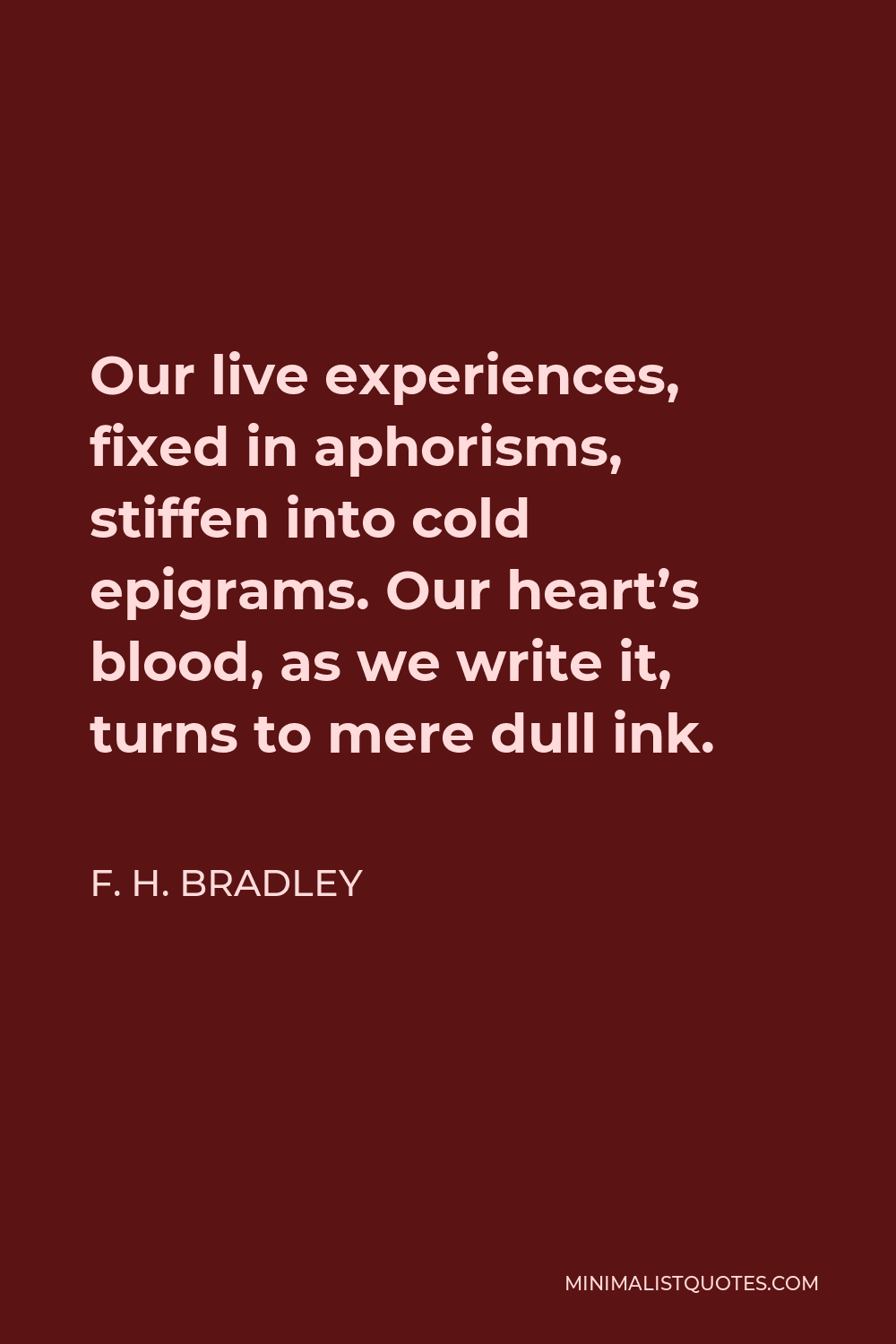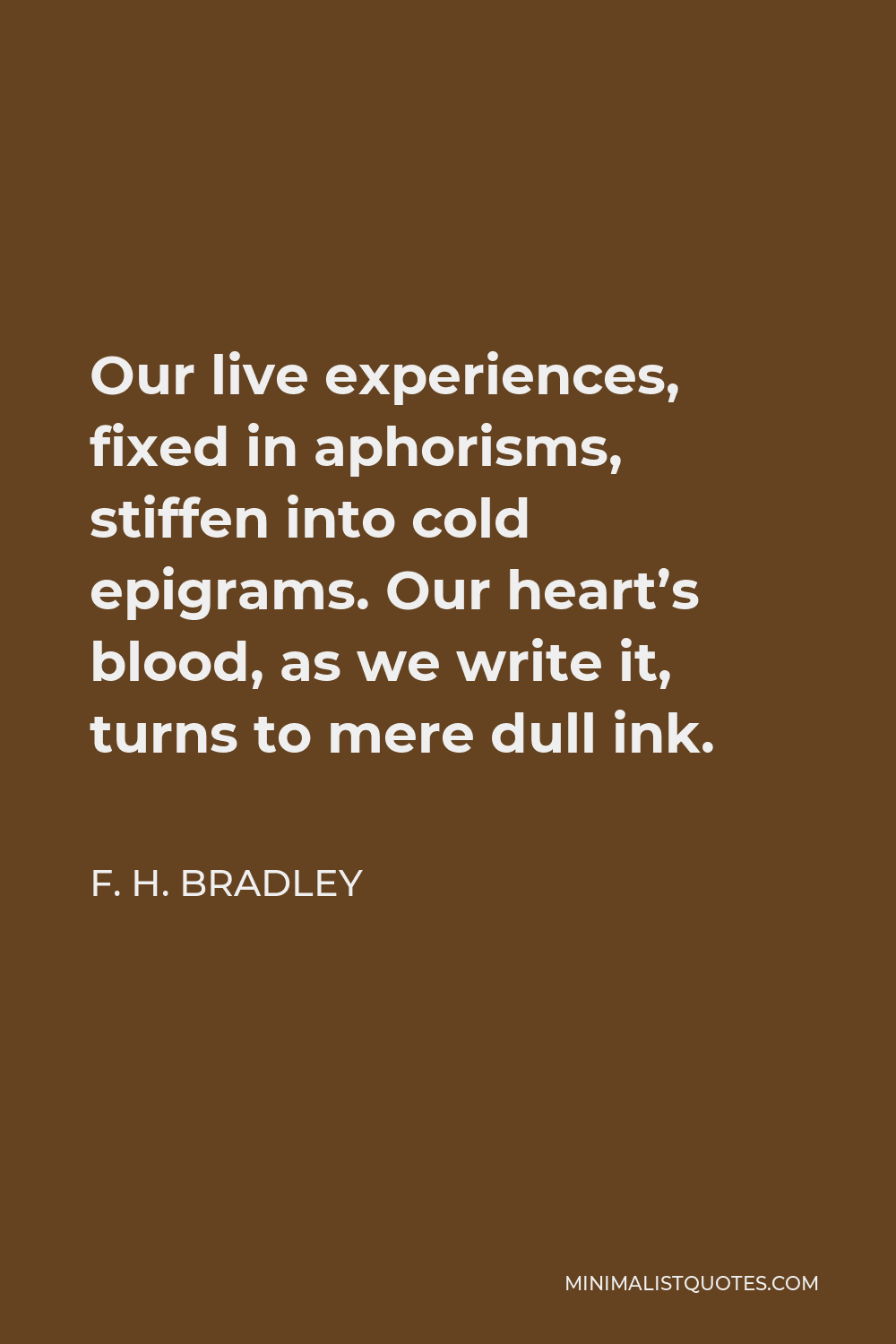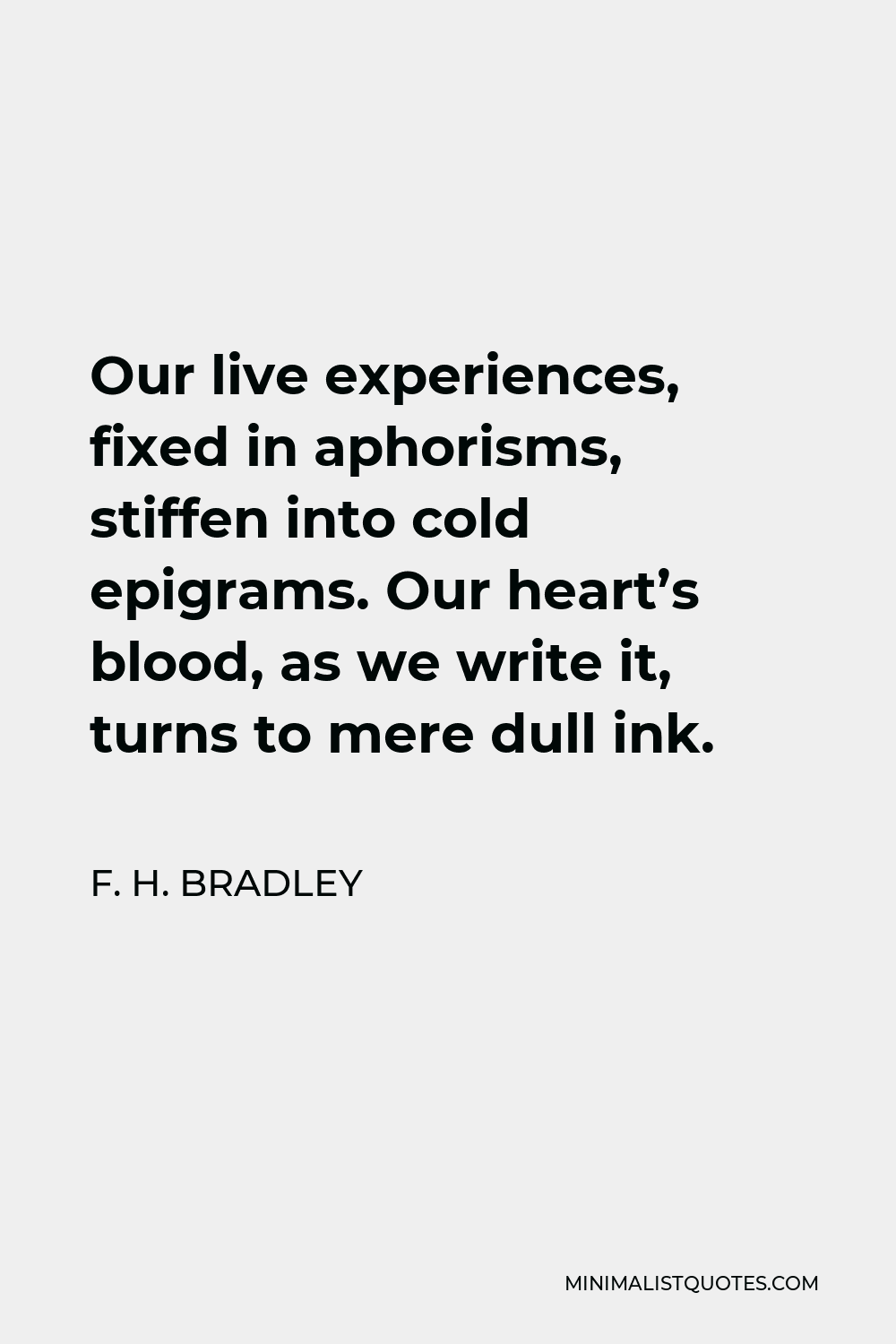Few people would not be the worse for complete sincerity.
F. H. BRADLEYOur live experiences, fixed in aphorisms, stiffen into cold epigrams. Our heart’s blood, as we write it, turns to mere dull ink.
More F. H. Bradley Quotes
-





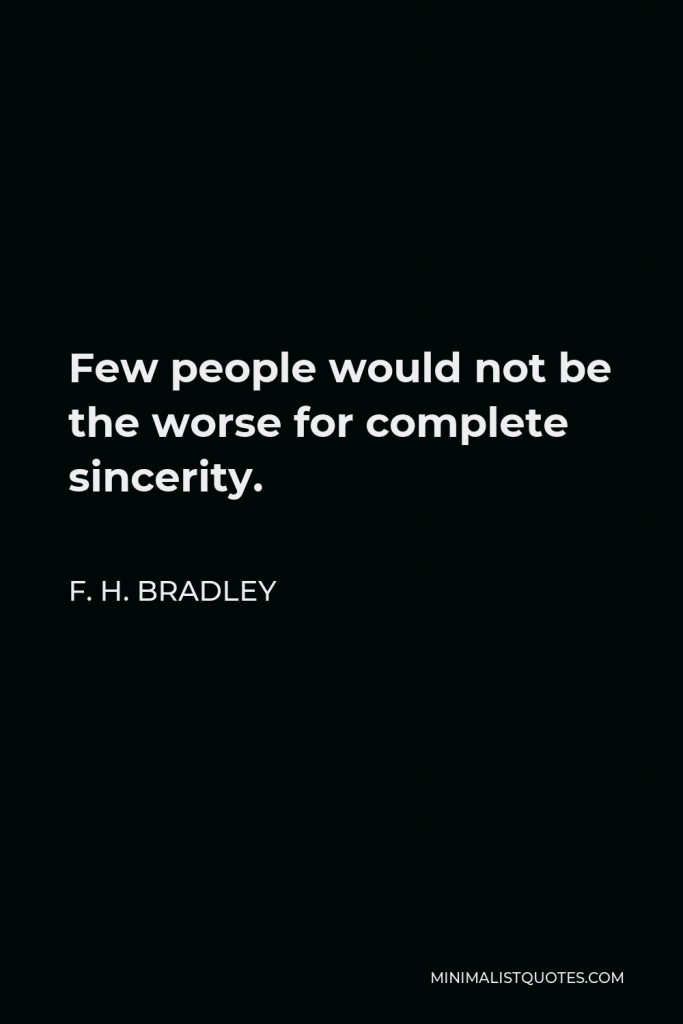

-





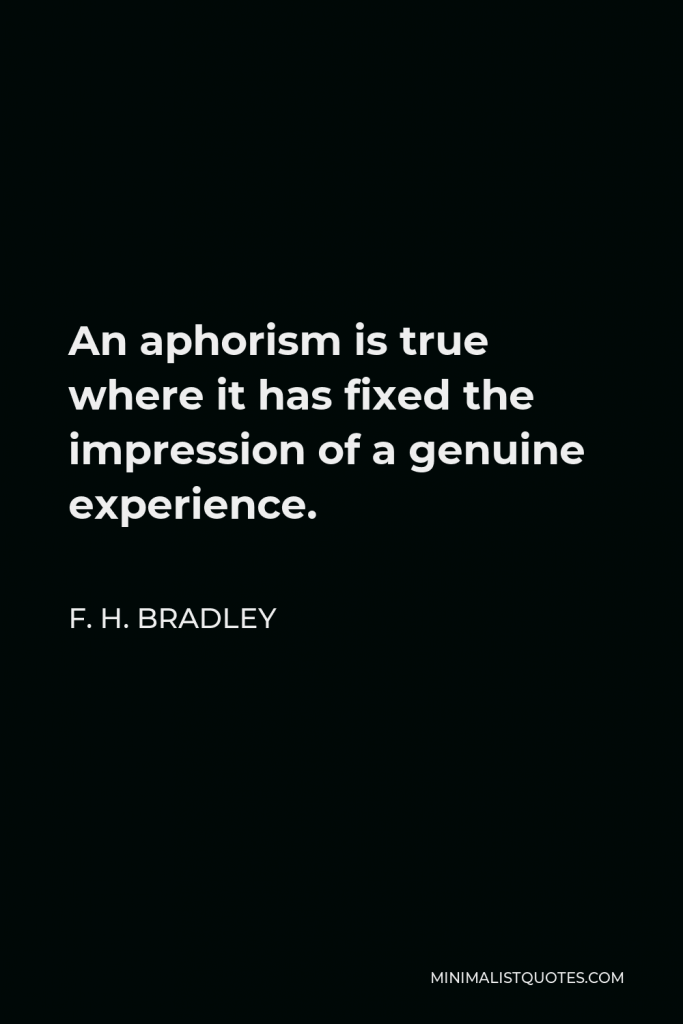

An aphorism is true where it has fixed the impression of a genuine experience.
F. H. BRADLEY -





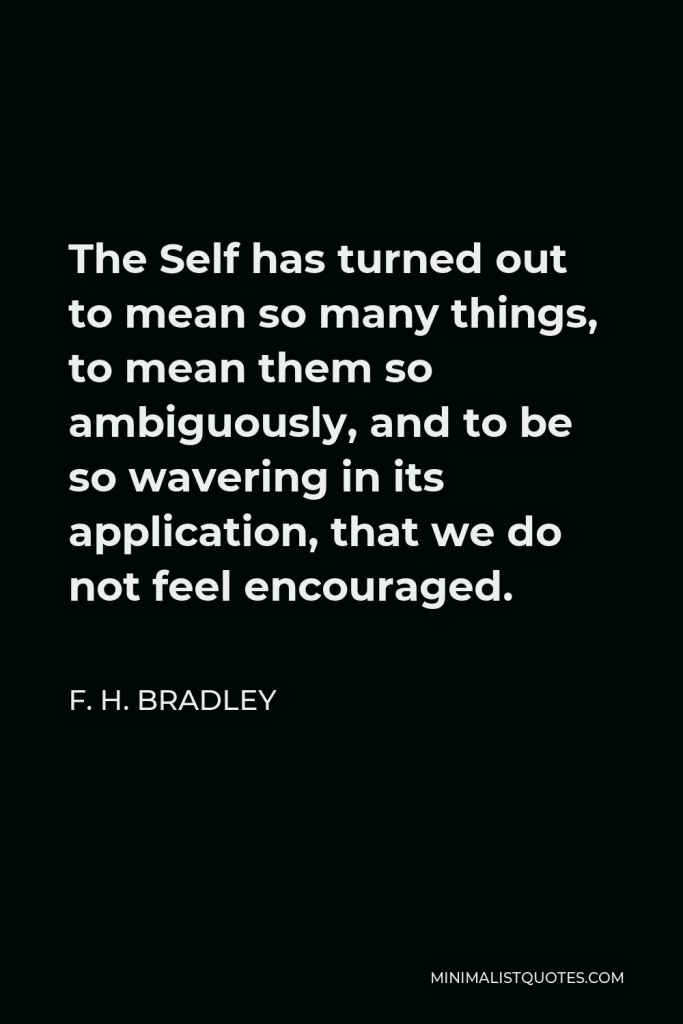

The Self has turned out to mean so many things, to mean them so ambiguously, and to be so wavering in its application, that we do not feel encouraged.
F. H. BRADLEY -





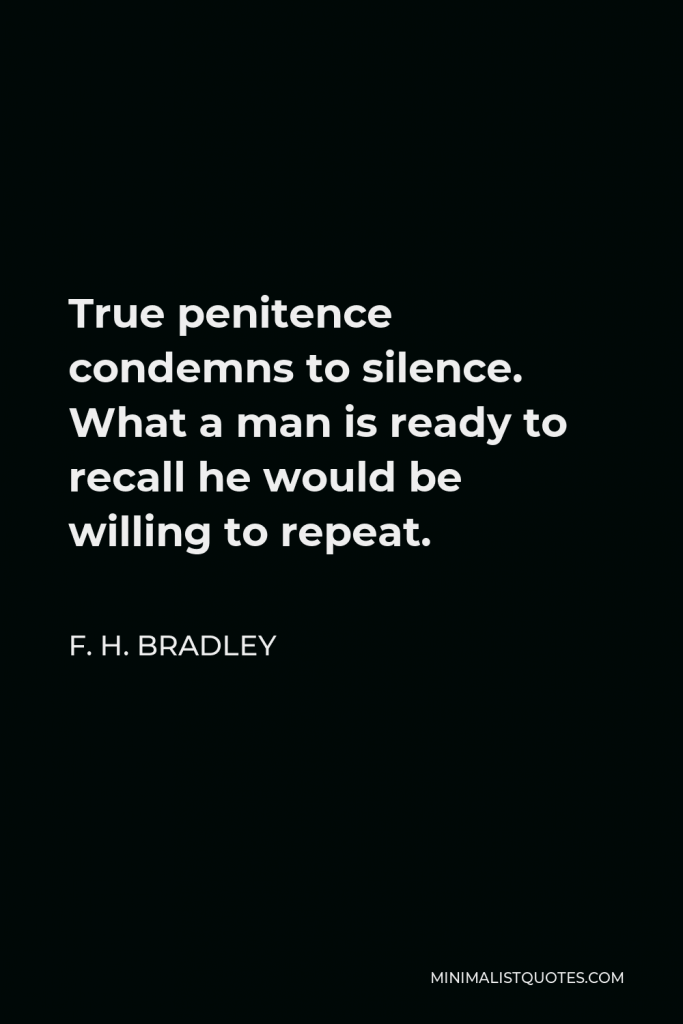

True penitence condemns to silence. What a man is ready to recall he would be willing to repeat.
F. H. BRADLEY -





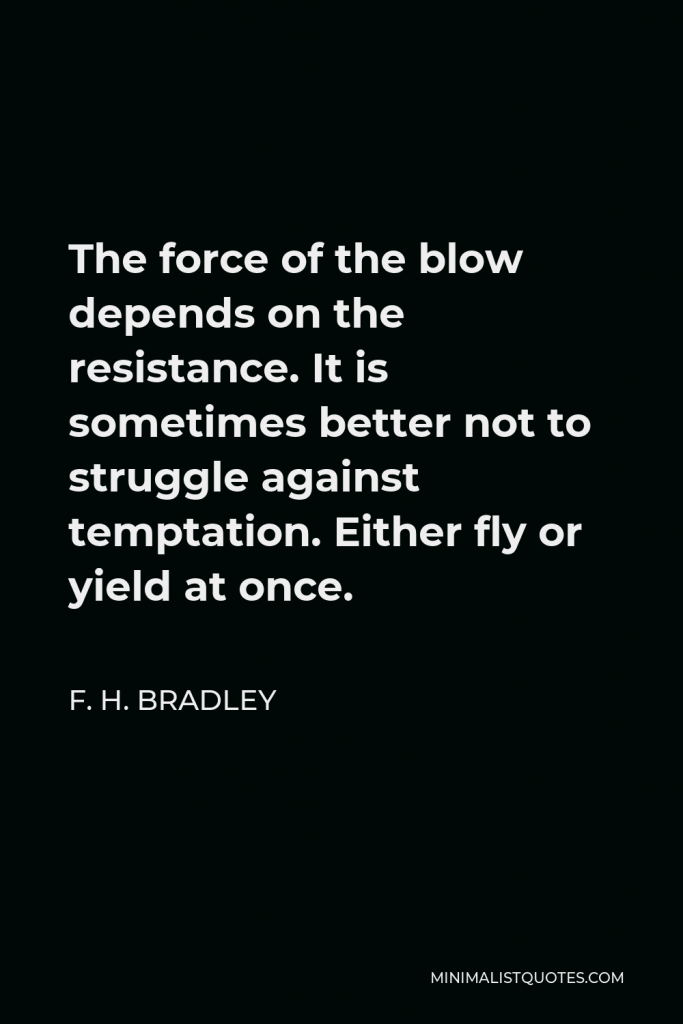

The force of the blow depends on the resistance. It is sometimes better not to struggle against temptation. Either fly or yield at once.
F. H. BRADLEY -





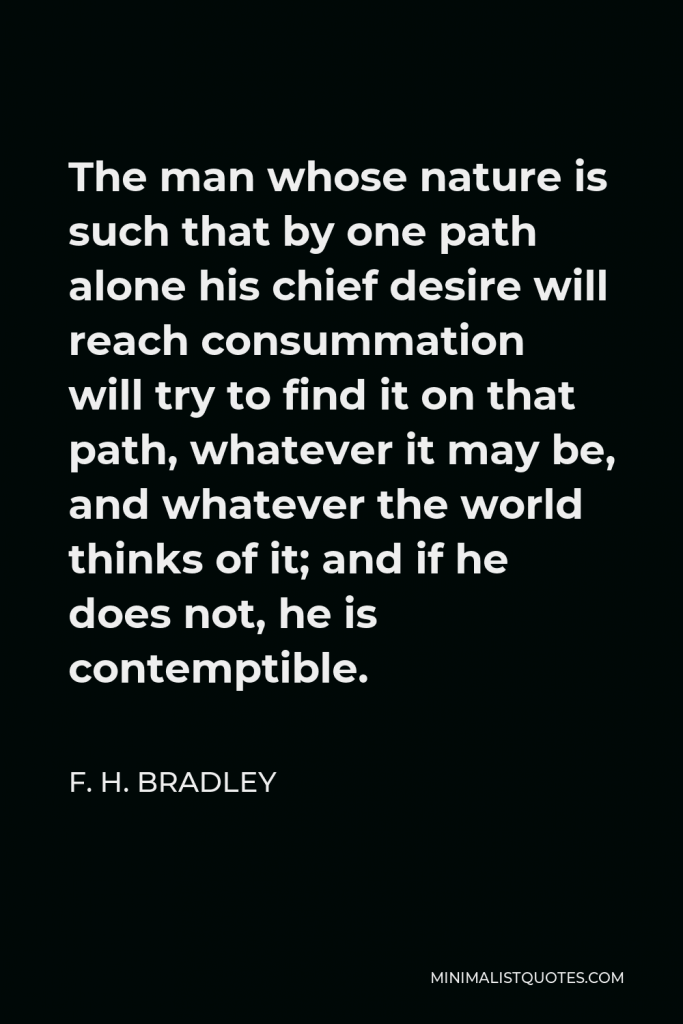

The man whose nature is such that by one path alone his chief desire will reach consummation will try to find it on that path, whatever it may be, and whatever the world thinks of it; and if he does not, he is contemptible.
F. H. BRADLEY -





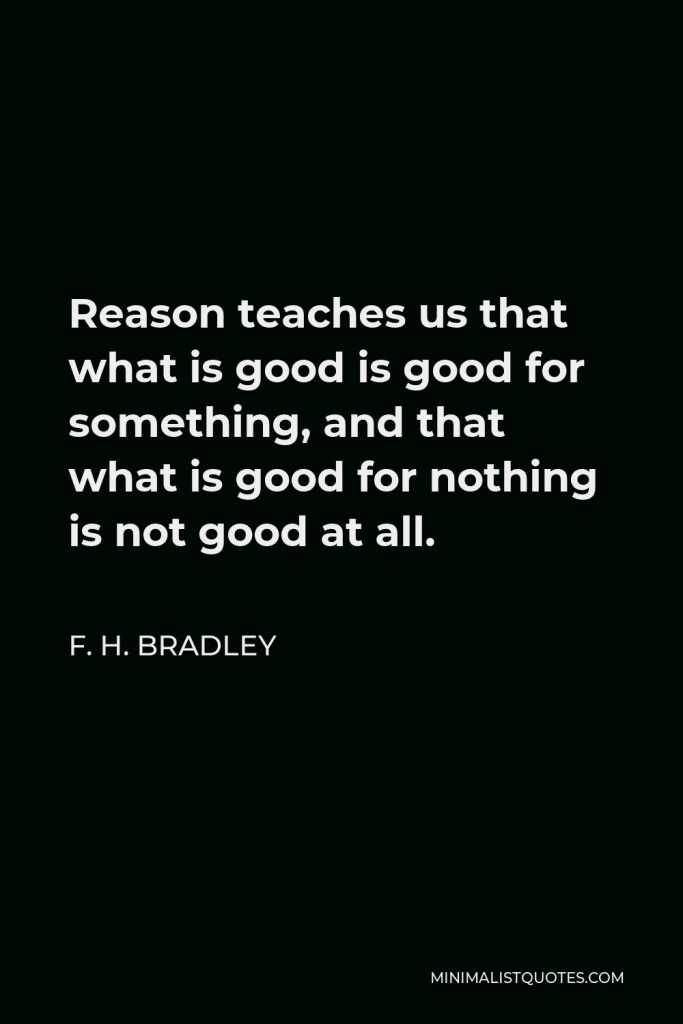

Reason teaches us that what is good is good for something, and that what is good for nothing is not good at all.
F. H. BRADLEY -





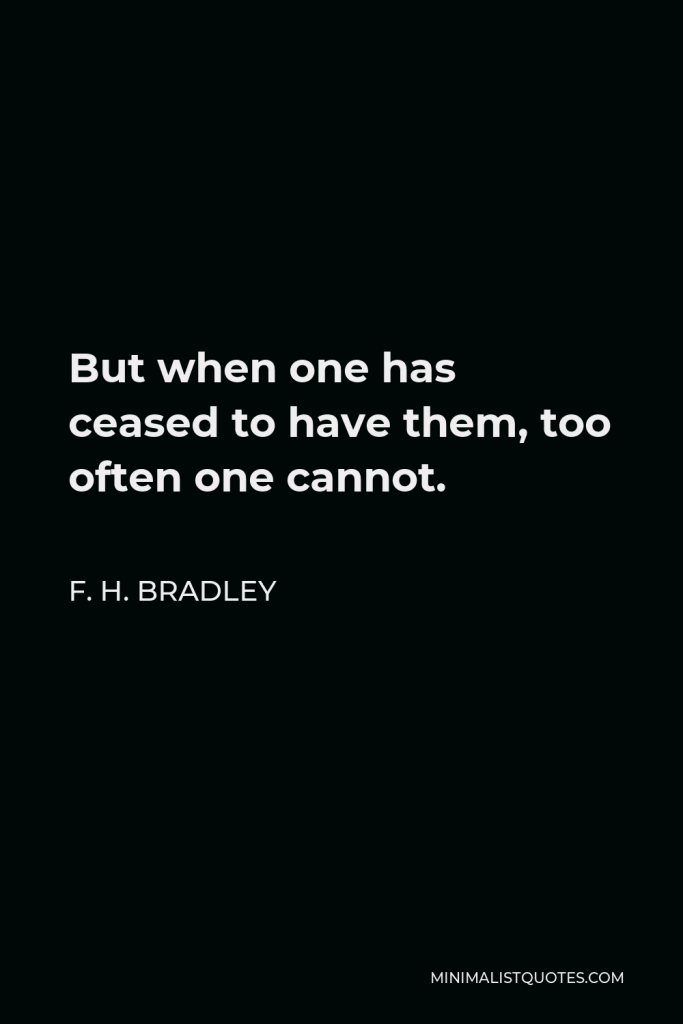

But when one has ceased to have them, too often one cannot.
F. H. BRADLEY -





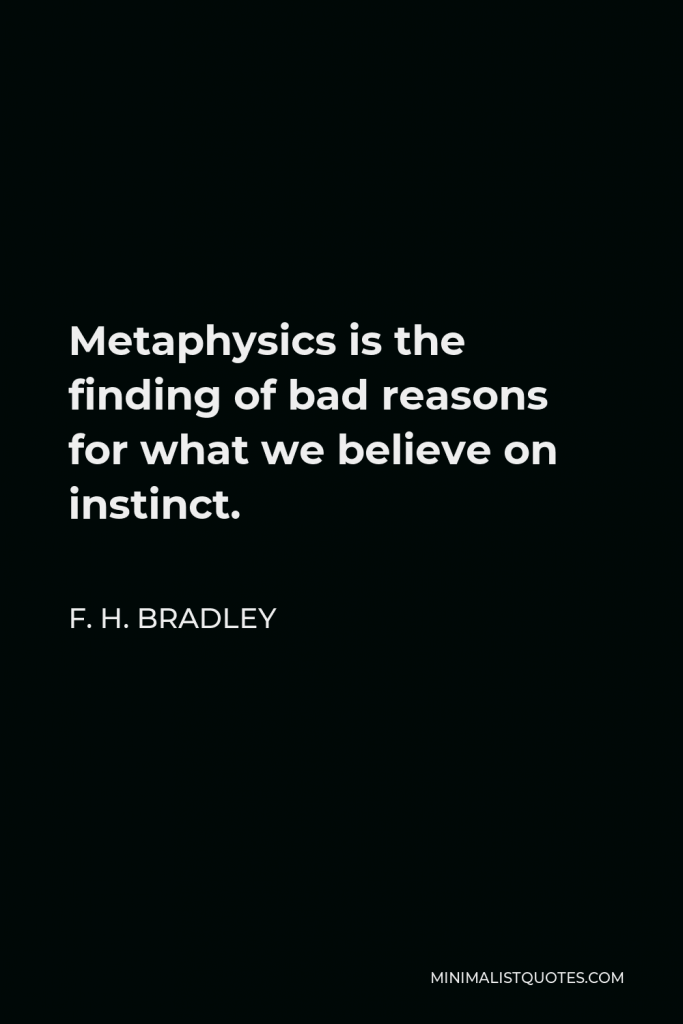

Metaphysics is the finding of bad reasons for what we believe on instinct.
F. H. BRADLEY -





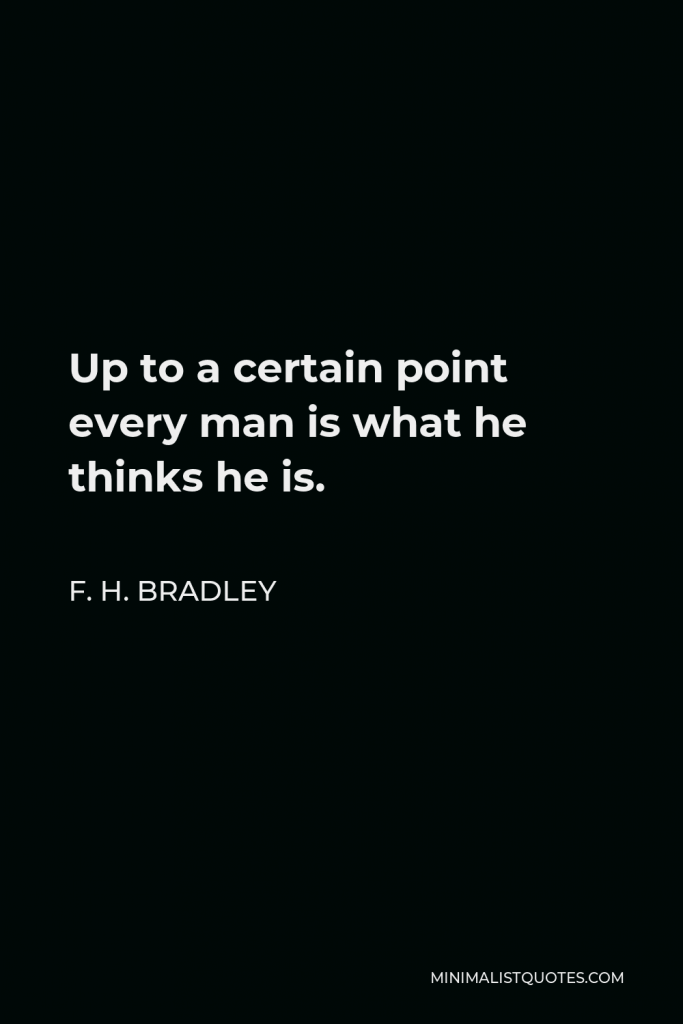

Up to a certain point every man is what he thinks he is.
F. H. BRADLEY -





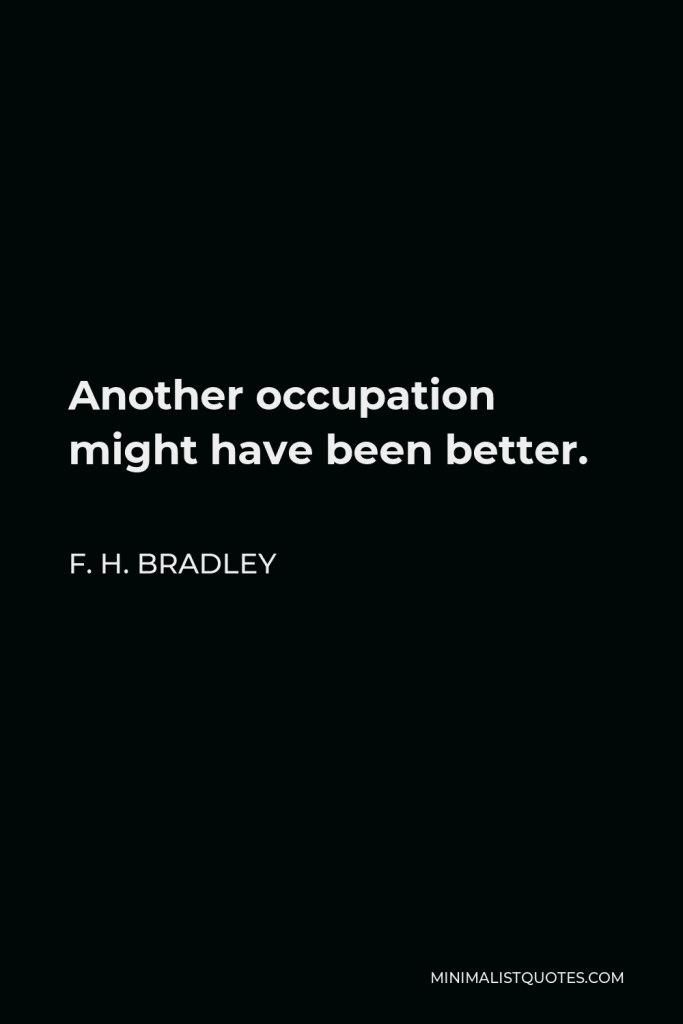

Another occupation might have been better.
F. H. BRADLEY -





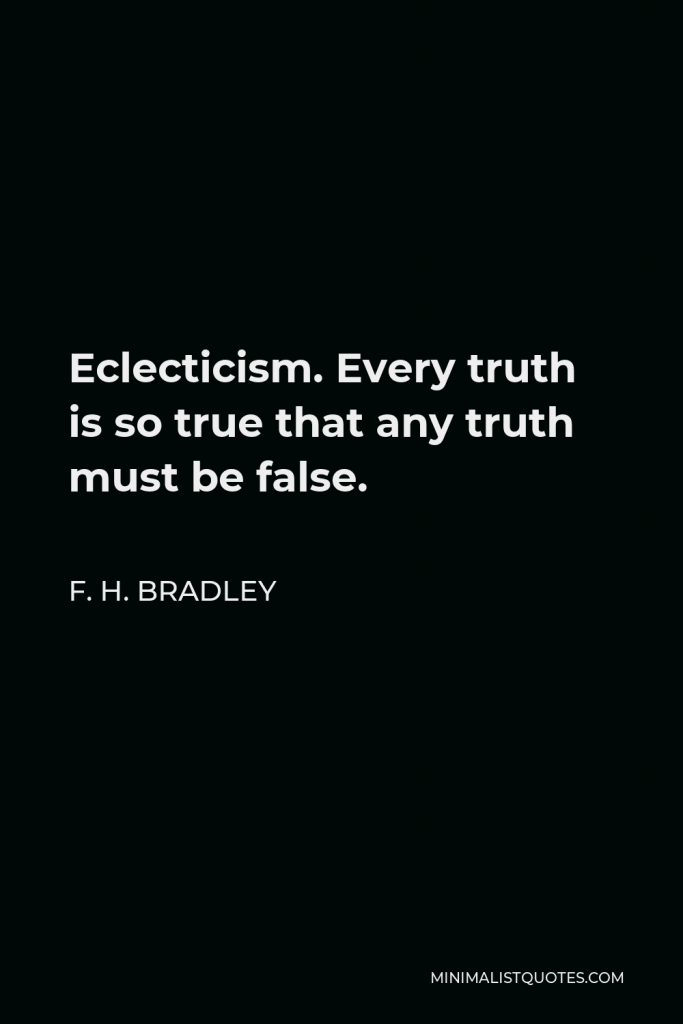

Eclecticism. Every truth is so true that any truth must be false.
F. H. BRADLEY -





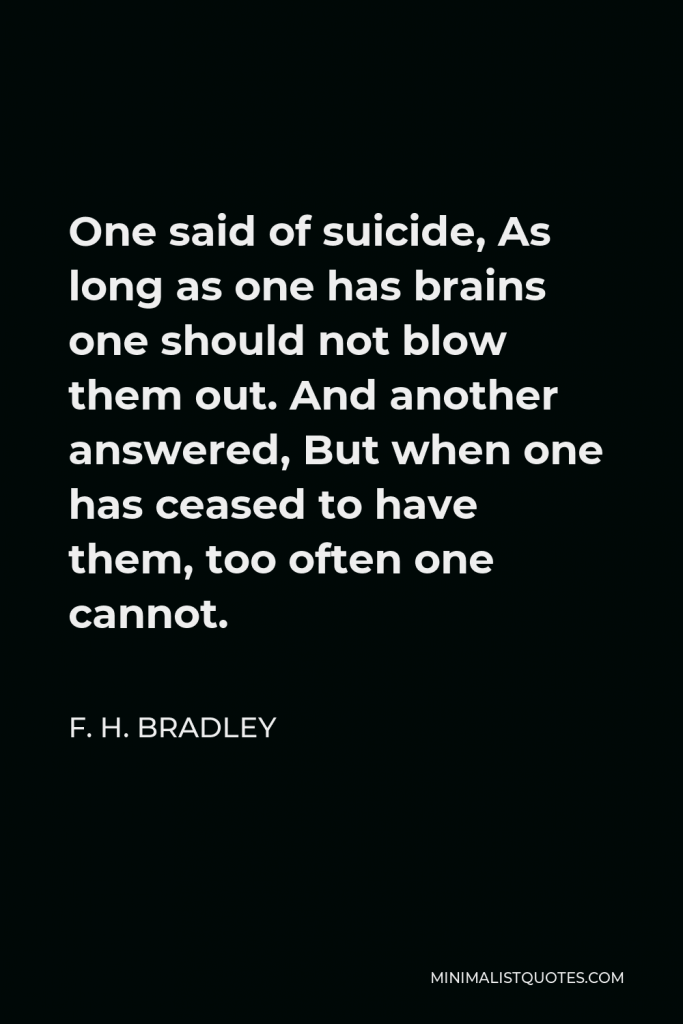

One said of suicide, As long as one has brains one should not blow them out. And another answered, But when one has ceased to have them, too often one cannot.
F. H. BRADLEY -





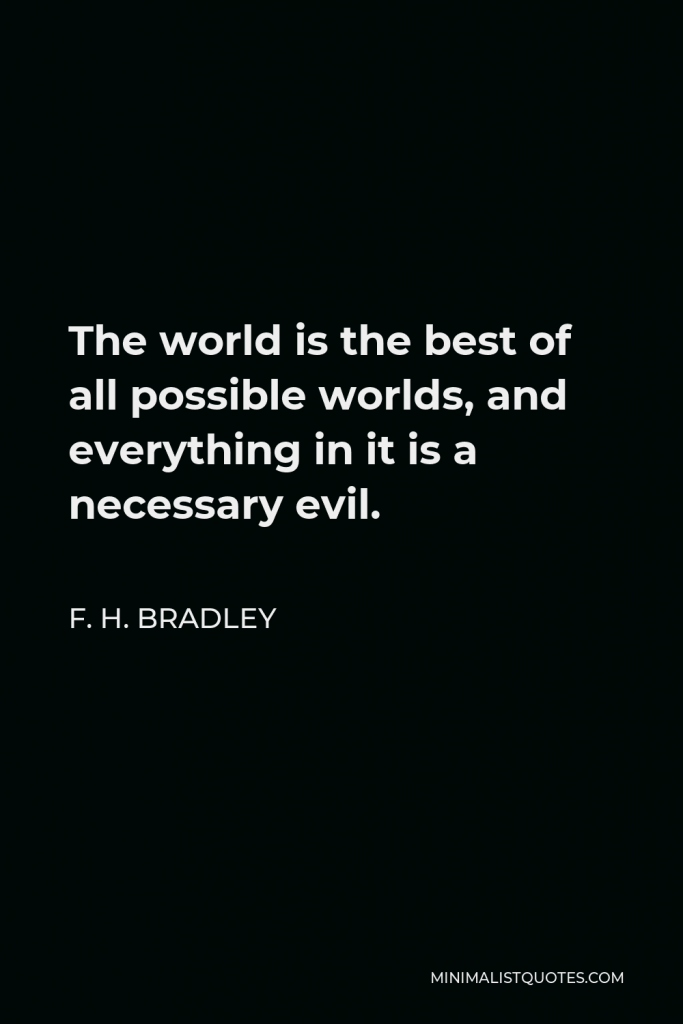

The world is the best of all possible worlds, and everything in it is a necessary evil.
F. H. BRADLEY -





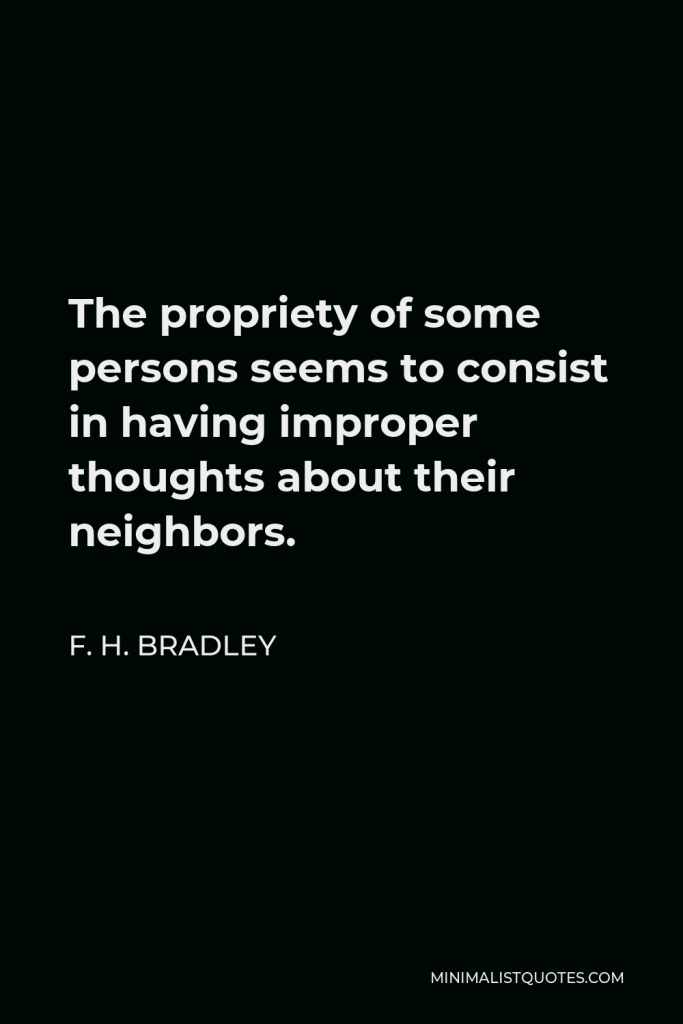

The propriety of some persons seems to consist in having improper thoughts about their neighbors.
F. H. BRADLEY -





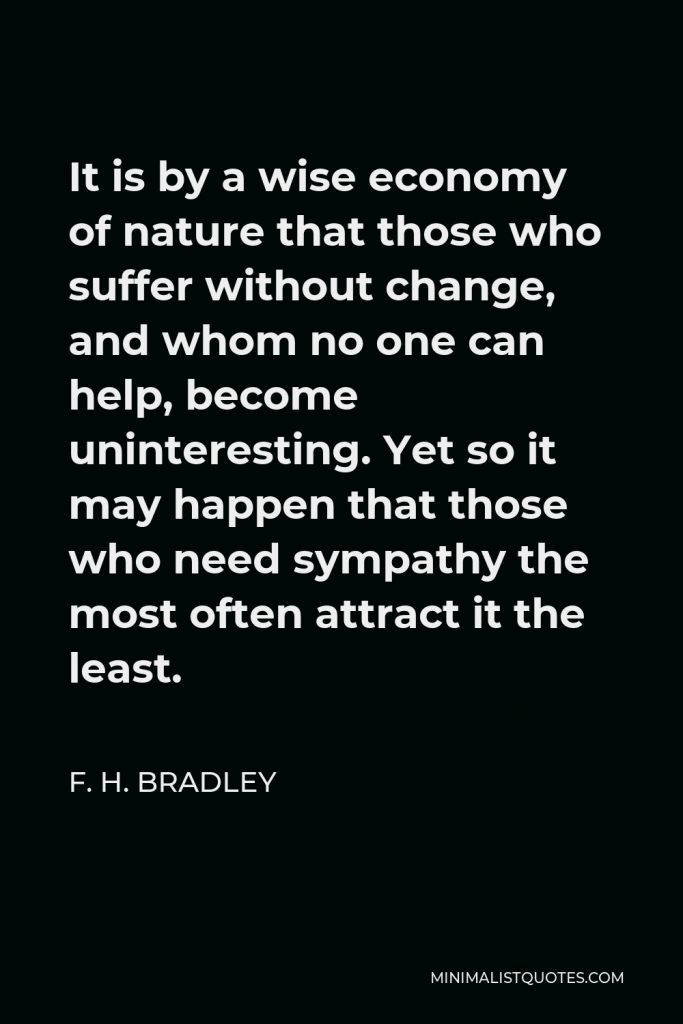

It is by a wise economy of nature that those who suffer without change, and whom no one can help, become uninteresting. Yet so it may happen that those who need sympathy the most often attract it the least.
F. H. BRADLEY
